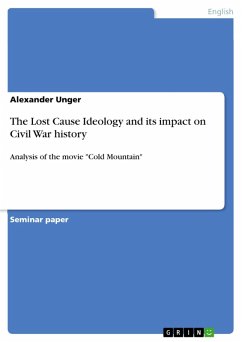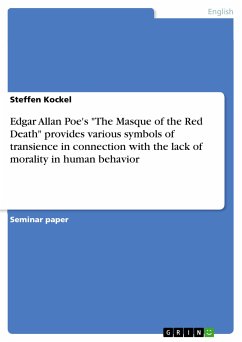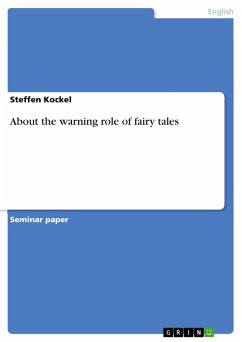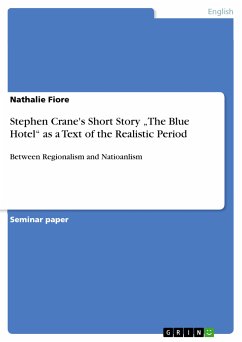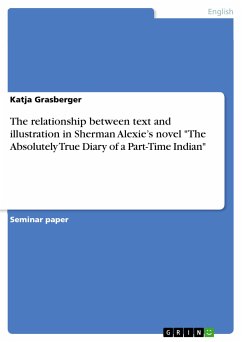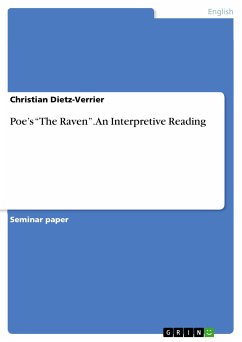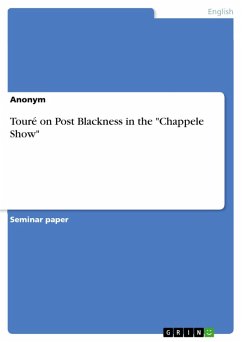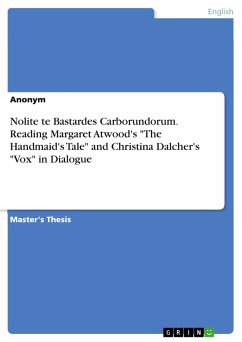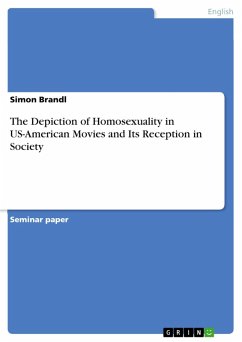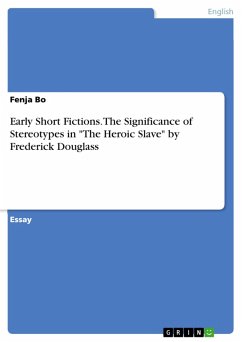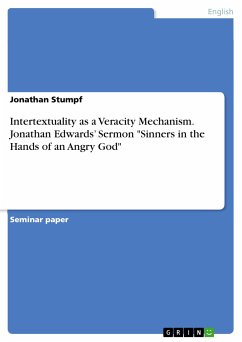
Intertextuality as a Veracity Mechanism. Jonathan Edwards' Sermon "Sinners in the Hands of an Angry God" (eBook, PDF)
Sofort per Download lieferbar
Statt: 15,95 €**
13,99 €
inkl. MwSt. und vom Verlag festgesetzt.
**Preis der gedruckten Ausgabe (Broschiertes Buch)
Alle Infos zum eBook verschenkenWeitere Ausgaben:

PAYBACK Punkte
0 °P sammeln!
Seminar paper from the year 2019 in the subject American Studies - Comparative Literature, grade: 1,0, Leiden University, language: English, abstract: This paper analyses if intertextuality in Jonathan Edward's Sermon "Sinners in the Hands of an Angry God" is a veracity mechanism. Jonathan Edwards delivered a sermon in Enfield, Connecticut, during the time of the so-called First Great Awakening (1730-1755) that is known by the title "Sinners in the Hands of an Angry God". This sermon combines vivid imagery of Hell with quotations from and plenty of allusions to the Bible. Reverend Steven Willi...
Seminar paper from the year 2019 in the subject American Studies - Comparative Literature, grade: 1,0, Leiden University, language: English, abstract: This paper analyses if intertextuality in Jonathan Edward's Sermon "Sinners in the Hands of an Angry God" is a veracity mechanism. Jonathan Edwards delivered a sermon in Enfield, Connecticut, during the time of the so-called First Great Awakening (1730-1755) that is known by the title "Sinners in the Hands of an Angry God". This sermon combines vivid imagery of Hell with quotations from and plenty of allusions to the Bible. Reverend Steven Williams, who in his diary calls it "a very awakening sermon," also notes that even "before the sermon was done there was a great moaning and crying out through the whole house [...] so that the minister was obliged to desist". The question thus arises, which elements or rhetorical aspects of the speech might have amplified the reactions of the crowd?
Dieser Download kann aus rechtlichen Gründen nur mit Rechnungsadresse in A, B, BG, CY, CZ, D, DK, EW, E, FIN, F, GR, HR, H, IRL, I, LT, L, LR, M, NL, PL, P, R, S, SLO, SK ausgeliefert werden.




